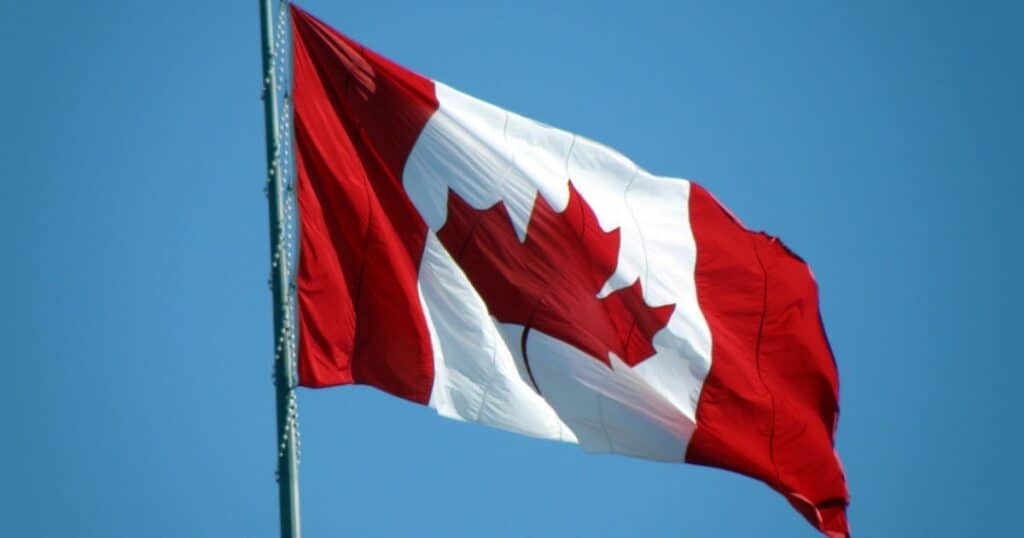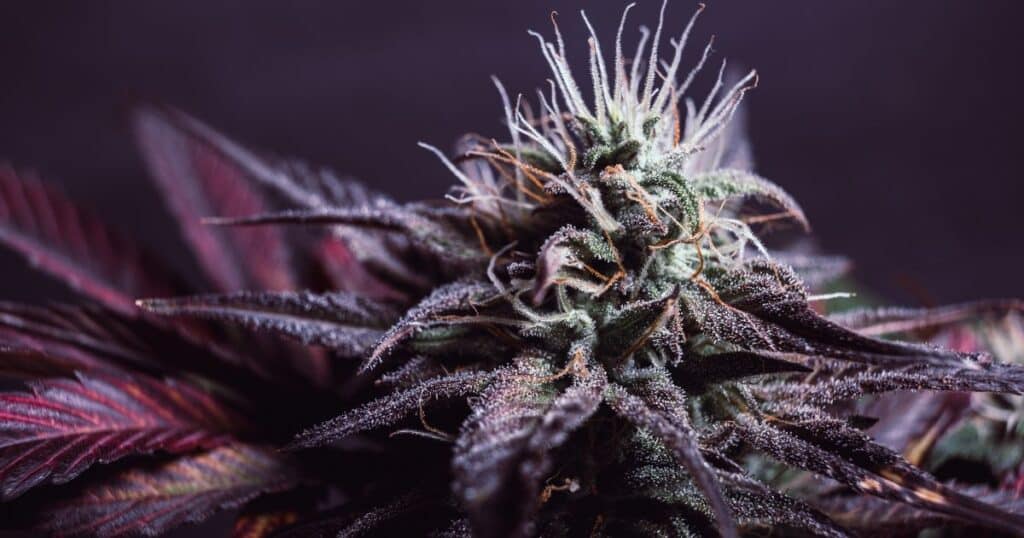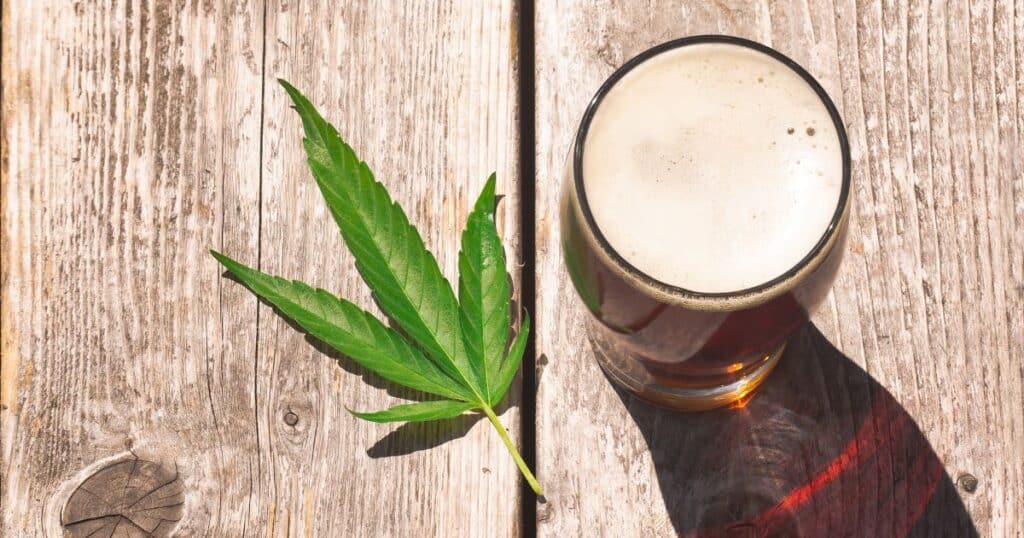The legalization of marijuana for non-medical use in Canada has had a substantial impact on the economy, consumer behavior, and even the cultural landscape.
One particularly fascinating insight from a recent Canadian study is that it has been “associated with an immediate decline in beer sales,” according to researchers from the University of Manitoba, Memorial University of Newfoundland, and the University of Toronto.
This unique trend showcases a consumer behavior anomaly directly stepping from the changes in the legal landscape of cannabis.

The Numbers
The study, published in the journal Drug and Alcohol Dependence, dove into the sales figures from before and after Canada’s decision to legally allow the use of adult-use marijuana. What researchers found were statistically significant drops in the sale of beer, representing a substantial decrease in hectoliters sold per 100,000 individuals.
The decline immediately following legalization was a stark 96 hectoliters per 100,000 people. This initial drop displayed a clear and abrupt consumer shift.
However, the monthly reduction that followed was less chaotic, yet the downward sales trend continued. Averaging a monthly reduction of 136 hectoliters per 100,000 people post-legalization, the study highlights a consistent yet graduated decline in beer sales.
The study concluded, “We found that non-medical cannabis legalization was associated with an immediate decline in beer sales. Furthermore, beer sales continued to decline in the post-legalization period, suggesting that individuals are moving away from beer towards legal cannabis. These declines in beer sales were most pronounced in the four Western provinces. Meanwhile, we found no change in spirits sales following the legalization.”
While some might argue that cannabis and alcohol have been competing for consumer attention for years, the fact that a global leader in the beer market like Canada is experiencing such a decline is very telling.
The research suggests that individuals might indeed be moving away from beer and towards cannabis as a substitution for their intoxicant of choice.
However, the study did not observe a similar decrease in the sales of spirits, indicating a unique preference for cannabis as an alternative to beer over other alcohol types.
In a recent article about the study, Paul Armentano, NORML’s Deputy Director, has pointed out that the phenomenon observed in Canada is not isolated.
In the United States, there have been similar reports of alcohol sales experiencing declines in states following the legalization of marijuana.
Yet, Armentano emphasizes that research into how alcohol and cannabis influence each other’s consumption – whether as substitutes or complements – has historically produced mixed findings. This underscores the complexity of consumer behavior and the variety of factors that can influence decisions in the marketplace.
Furthermore, the analysis of beer sales by type reveals an intriguing pattern. Canned and kegged beer sales displayed the most significant declines, aligning with the hypothesis that individuals could be favoring cannabis over these more casual, at-home drinking options.
Implications for Business and Policy?
The decline in beer sales signifies a domino effect that is not only reshaping consumer preferences but also industry strategies and, potentially, government policy.
Businesses in the alcohol industry must now contend with a new dynamic where cannabis is increasingly becoming a competitive alternative.
Understanding this behavior can help businesses recalibrate their marketing and product development strategies, tailoring their offerings to align with consumer desires. It could also precipitate further innovation in the alcohol sector as it seeks to remain relevant in a transforming marketplace.
The cannabis industry, which has already surpassed tax revenues from beer and wine in Canada, presents a new model that policymakers may consider when outlining future regulatory paths.
Looking Toward the Future
This Canadian study is just the beginning of a new chapter in the intertwined story of alcohol and cannabis consumption. The impacted sectors will undoubtedly continue to study and respond to these trends. The unique relationship between the legalization of marijuana and declines in beer sales may signal broader cultural shifts.
For cannabis enthusiasts, this is a demonstration of the plant’s growing acceptance and affirmative impact. It is clear evidence that marijuana’s place as a consumer staple is secure.
For industry professionals, it provides a deeper understanding of market forces and the power of legality in influencing consumer decisions.
This emerging trend in Canada mirrors a similar shift in the United States, where people are increasingly recognizing cannabis as a less harmful alternative to alcohol. Public opinion is deeply influenced by personal experience with marijuana.
According to a Gallup poll, a significant portion of the American population, nearly half, has tried marijuana at some point, and those with firsthand experience overwhelmingly perceive its effects on both users (70%) and society (66%) as positive.
In stark contrast, individuals who have never used marijuana tend to view its societal (72%) and individual (62%) impacts negatively.
Additionally, a Gallup poll highlighted a prevailing sentiment among Americans, with three-quarters acknowledging alcohol’s negative influence on society and 71% considering it harmful to consumers.
This collective shift in perception underlines a broader cultural reevaluation of marijuana vs alcohol, reinforcing the trend of cannabis being increasingly favored as a safer recreational option.

Overall, this study in Canada provides important insights that go beyond mere sales data. It is a reflection of changing societal norms and values, and it serves as a forerunner of possible future directions for both the alcohol and cannabis industries.
It is a testament to the cannabis market’s growth and potential, and a call to explore further the nuanced interactions between substance legality, industry performance, and consumer preferences.
The Canadian study presenting the decrease in beer sales post marijuana legalization is a captivating gateway to understanding the complex relationship between two powerful economic and societal forces.
It’s data of change, adaptability, and competition—and the businesses and policymakers who make the most of this insight will be the ones shaping the future of Canadian society and, potentially, global markets.
















